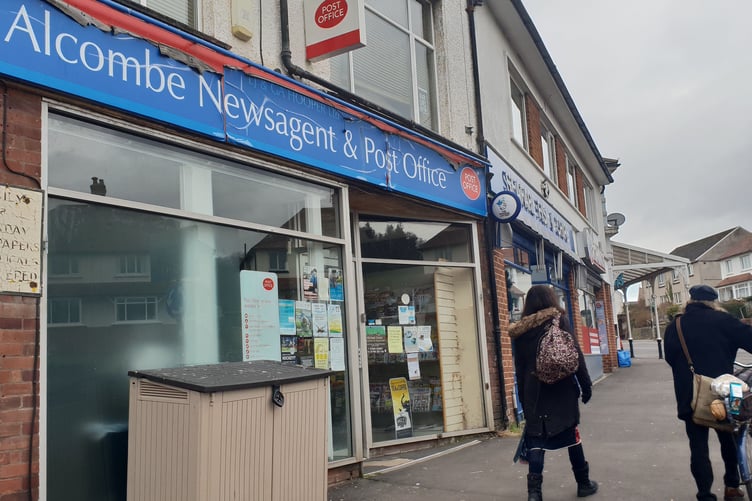POST Offices, pharmacies, and convenience stores were the most valued services in rural areas such as Exmoor and West Somerset, a ‘Community Barometer’ survey has shown.
For a second year in a row the barometer revealed the three facilities were top rated by rural communities.
The survey explores how people value the services in their local area, what they would like to see more of, and how they would prioritise investment in their community.
It is run by the Association of Convenience Stores (ACS), one of the Rural Services Network’s partners, which has launched its 2023 report.
The report showed the top three services which had the most positive impact in rural settlements were Post Offices, pharmacies, and convenience stores.
Local people rated them as the most essential, with pharmacies considered to be the number one most vital rural service.
The ACS report comes in a year when West Somerset has seen Post Office services closed in Carhampton, Exford, Lydeard St Lawrence, and Winsford, while those in Watchet, Alcombe, Kilve, and Wheddon Cross only kept going after a last-minute rescue deal.

However, Watchet and Alcombe’s opening hours were reduced, and Kilve PO and Stores has since been put up for sale, as has the one in Nether Stowey.
Village shops have also closed in Carhampton and Washford, while in Stogumber, local residents formed a community interest company to save their shop and PO when the owners retired.
ACS chief executive James Lowman said: “UK consumers are sending a very clear message that a diverse range of local services are essential to the wellbeing of their communities.
“Convenience stores are increasingly acting as service hubs, including Post Office counters, prescription collections, and banking services within their businesses, which are highly valued by their customers.
“The importance of convenience stores to older customers is well documented, with stores acting as social hubs and a support network for those who are vulnerable or less mobile, but these figures show that in areas like reducing loneliness, local shops are incredibly important to young people as well.
“It is encouraging to see the continued relevance of convenience stores to the next generation of consumers.”

Post Office group chief retail officer Martin Roberts said: “I am delighted that Post Offices have been recognised as having the most positive impact on a local area.
“Postmasters provide their communities with essential services, whether it is banking, paying a bill, topping up gas and electricity cards, or sending letters and gifts to loved ones.
“Consumers value face-to-face customer service and know that at their local Post Office they will be served by a trusted and knowledgeable postmaster.
“Many branches are at the heart of the community and provide an opportunity to socialise, helping to add to people’s general wellbeing.
“I am grateful to postmasters and their teams for all they do serving their communities and this report recognises their hard work and commitment.”

The ‘Community Barometer’ report also looked at the way different age groups felt about their local convenience stores and the value they brought to their communities.
In this year’s report, 18–24-year-olds were the keenest for having more convenience stores in their area compared to other age groups, and were also the most positive about their local convenience store being a community hub, reducing loneliness, and helping to keep people safe at night.
The Rural Services Network also recognised the role convenience stores and post office services could play in rural communities, often providing a lifeline for residents who might be unable to access alternative services due to a lack of public transport.
The network recognised they helped to reduce social isolation, as a shop could often play the role of the hub of the community.





Comments
This article has no comments yet. Be the first to leave a comment.